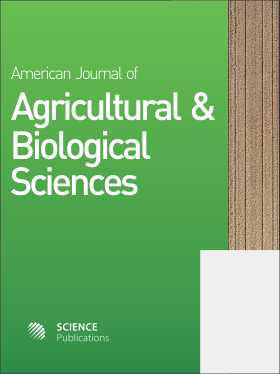Availability and Physical Properties of Residues from Major Agricultural Crops for Energy Conversion Through Thermochemical Processes
- 1 Department of Process Engineering and Applied Science, Faculty of Engineering, Dalhousie University, Halifax, Canada
- 2 School of Energy Science and Engineering, Harbin Institute of Technology, Harbin, China
Abstract
Plant residues from the major agricultural crops (wheat, rice, corn, soybean, sugarcane, coffee and cotton) are abundantly available renewable resources that can be used to supply energy through thermochemical conversion processes. The available amounts of plant residues from these crops and their physical properties (moisture content, particle size, bulk density and porosity) were determined. The annual residues from the wheat, rice, corn, soybean, sugarcane, coffee and cotton were 763.42, 698.10, 1729.92, 416.62, 16.85, 4.01 and 107.13 million tons, respectively. The total amount of plant residues was estimated at 3736.05 million tons with total energy content of 66.92 EJ. These residues can replace 2283.52 million tons of coal, 1551.78 million tons of oil and 1847.63 million m3 of natural gas. The moisture contents were 7.79, 6.58, 6.40, 7.30, 8.15, 7.86 and 7.45% for the wheat straw, rice straw, corn stalk, soybean stalk, sugarcane stalk, coffee husk and cotton stalk, respectively. The corn stalk and sugarcane stalk had a convex particle size distribution, the soybean stalk and cotton stalk had a concave particle size distribution, the wheat straw and rice straw had an increasing trend particle size distribution and the coffee husk had a decreasing trend particle size distribution. The average particle sizes for the wheat straw, rice straw, corn stalk, soybean stalk, sugarcane stalk, coffee husk and cotton stalk were 0.42, 0.40, 0.49, 0.43, 0.55, 0.67 and 0.38 mm, respectively. The average bulk density was 160.75, 166.29, 127.32, 242.34, 110.86, 349.06 and 230.55 kg m-3 for the wheat straw, rice straw, corn stalk, soybean stalk, sugarcane stalk, coffee husk and cotton stalk, respectively. The average porosity was 51.25, 83.20, 58.51, 68.03, 77.58, 64.85 and 74.55% for the wheat straw, rice straw, corn stalk, soybean stalk, sugarcane stalk, coffee husk and cotton stalk, respectively. The results obtained from this study indicate that different plant residues have different physical properties.
DOI: https://doi.org/10.3844/ajabssp.2012.312.321

- 7,508 Views
- 9,569 Downloads
- 135 Citations
Download
Keywords
- Plant residues
- Availability
- Wheat Straw
- Rice Straw
- Corn Stalk
- Soybean Stalk
- Sugarcane Stalk
- Coffee husk
- Cotton stalk
- Physical Property
- Moisture Content
- Particle Size
- Bulk Density
- Porosity
